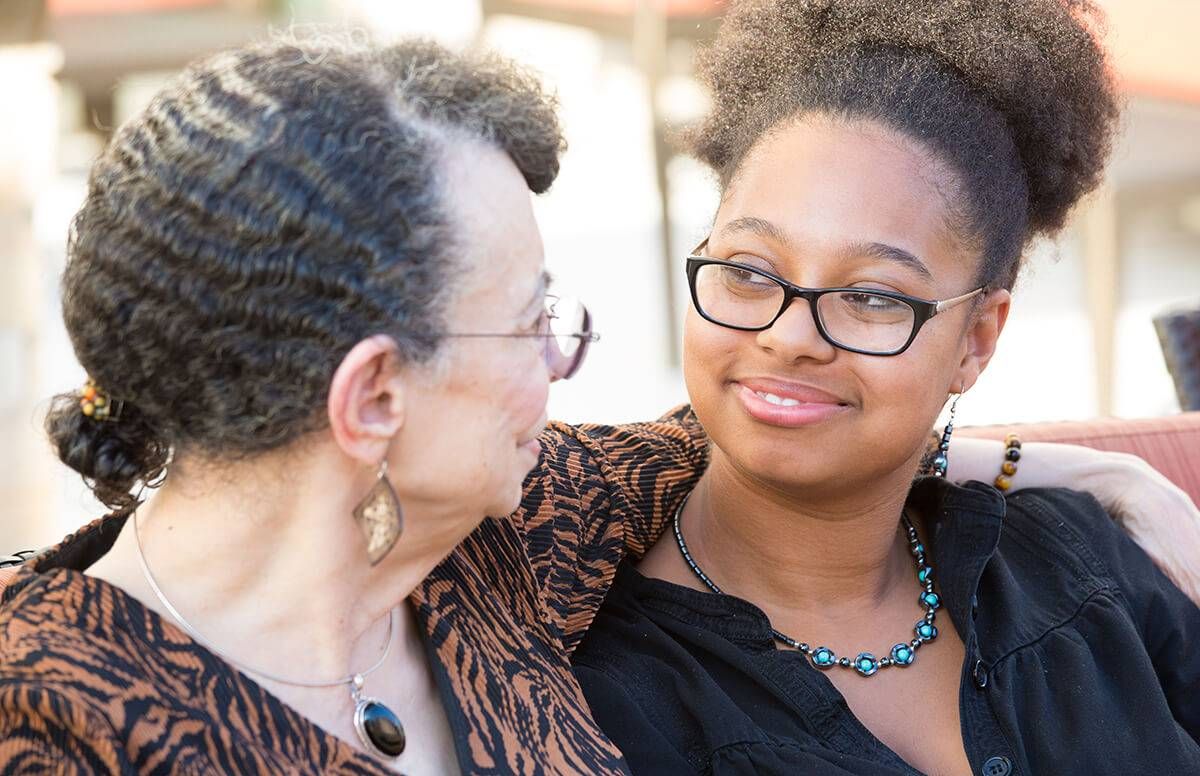2020 Election: How to Handle Family Political Conversations
Tips for managing challenging discussions during election season
On a recent Sunday afternoon, Allana Kane* of Connecticut invited her parents to watch the football game at her house, along with her husband, her two adult children and her daughter's boyfriend.


Kane' s mother called her that morning to see if she could bring anything. Kane thanked her for the offer but told her that it was unnecessary. However, she did have one request and that was, "Please don't talk politics. I want us to have a nice afternoon."
Thirty minutes into the game, Kane went into the kitchen to replenish the snacks. Once she was out of the room, her mother turned to her daughter's boyfriend and asked, "So, who are you voting for in the presidential election?"
That evening, Kane's daughter repeated to her what happened when she wasn't in the room. Kane was livid.
"My mother knows that her politics don't agree with mine or my children's," she says. "Why did she need to bring it up when I specifically asked her not to talk about it?"
Why the Political Divide Between the Generations?
Carla Marie Manly, psychologist and author of several books including, "Aging Joyfully: A Woman's Guide to Optimal Health, Relationships, and Fulfillment for Her 50s and Beyond," says, "In general, there are fundamental differences in the values and fears of the different generations. Baby boomers tend to be more focused on the nuclear family and material success. Younger voters [Gen Z and Millennials] are more concerned with social issues such as health care, systemic racism and the right to choose."
"My mother knows that her politics don't agree with mine or my children's."
It's not that one generation is right while the other is wrong. Being born in a different generation and having different life experiences has influenced their perspective, shaping their values and fears for themselves and the world.
Julie Green* of New Jersey says, "My parents and I have always had different political views. But as we get older, we are getting even further apart in our beliefs than ever before."
Why Do Some People Insist on Talking Politics?
So if family members know that others don't agree with their political beliefs, why keep bringing the subject up? Because people can become entrenched in their viewpoint.
Manly explains, "People are looking for everything that confirms what they believe to be true and dismiss anyone, or any media outlet, that gives an alternative viewpoint. This is known as 'conformational bias.'"
Green concurs and adds, "My parents' social circle is comprised of people that have the same political views as them. They all get their news from the same source and are totally [influenced] by what they hear on that channel."
Fueled with the idea that they are "right," they become focused on convincing those with opposing views that they are "wrong."
According to Manly, "They believe that they can convince others of the error in their ways. That, if those with opposing views understood the issues, they would change their minds."
When Kane asked her mother why she felt the need to ask about the election when she specifically asked her not to, her mother replied, "I'm just so worried about what will happen to the country if (blank) gets elected."
Manly explains, "Both the older generation and the younger one think 'It's imperative for the sake of the world that you comply with my beliefs or else something terrible will happen.'"
So Why Not Just Talk It Out?
The problem is that people rarely do change their minds based on conversation. Instead, these conversations are awkward at best and at worse, combative and destructive.
Kane recalls that when she asked her mother not to discuss politics, her mom agreed, but reluctantly. Then, several hours later, her mother seemed to forget or just disregard her earlier request to not bring up the topic.
Manly says, "Free speech is a constitutional right. People want to be able to express their views and feel they should be able to in any setting."
Mary Jo Rapini, a Houston-based psychotherapist and speaker, says, "Older people may feel they only have a few years left to express themselves and want to do so before it's too late. They are less likely to censor themselves."
But constitutional rights don't supersede house rules.
Kane says, "I was trying to help my mother and her relationship with her grandkids. They know her views and they disagree. They find it annoying that she continues to bring up politics when they are together. I worry that my mother is hurting her relationship with them and they may choose to avoid attending events where she will be present."
Talk Less, Listen More
It is possible to have a productive political conversation with a loved one if both parties are amicable and willing to listen to the other with an open mind.
"You can be comfortable with your own view, but still curious about another person's beliefs," says Manly.
If you want to try to talk politics with a family member with an opposing viewpoint, choose an appropriate time and setting. A big family gathering when people are consuming alcohol or where someone with a differing opinion might feel ganged up on is not the place to have a productive, well-intentioned discussion.
If they are truly using the conversation to gain insight and better understand a family member, it can bring both parties closer together.
In the right setting, a family member could say to another, "I'm really interested in why you feel this way. Could you enlighten me about how you came to have this opinion?"
The person that asked the question then needs to listen, without expressing judgment or jumping in with their own point of view. If they are truly using the conversation to gain insight and better understand a family member, it can bring both parties closer together.
However, if the sole reason the person asks the question is so that they can then get a chance to refute what the other person has said, the conversation will probably backfire and may lead to an argument.
Rapini explains, "A productive political conversation is focused on facts, not feelings. But in general, families are all about feelings, not facts. Family members may bring up politics because they want you to know how they feel, thinking this will bring everyone closer, but that is not what winds up happening."
Instead of Talking Politics, Take Action
Rather than trying to change family members' views (which probably won't happen), Manly suggests people focus on positive ways they can express their political beliefs. Use action instead of words.
That is exactly what Green did.
She says, "I realized that no amount of discussion was going to change my parents or my brother's political beliefs. So I channeled my frustration and began volunteering for VoteForward, where my efforts might actually make a difference in the election."
The Ultimate Goal
A family should be a place where you are secure and loved, no matter what. Especially this year with the pandemic, people are realizing how much they love their family and how much they value spending time together.
"If a family member says something political you disagree with, try not to react," Rapini says. "Understand that they are probably scared, either about the impact the election will have on your future or on their own life."
Rather than escalating the conversation, change the subject. Talk about something lighter and less controversial such as sports, or fun family memories from years ago.
"As upset as I get with my parents, I also love them dearly and am grateful to have them in my life. I'm lucky they live nearby so that I can see them often," says Green. "They are in their eighties and I know they won't always be here. I don't want to waste our time together arguing."
*Names and some details changed to protect privacy


